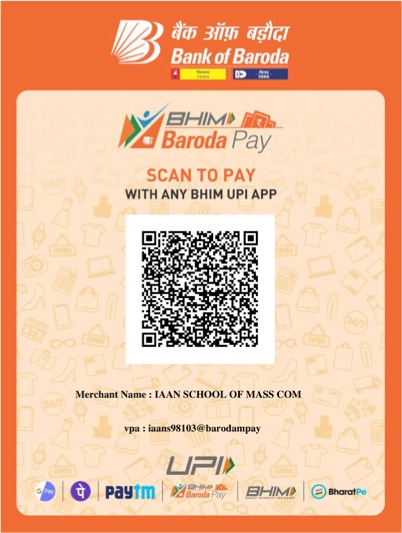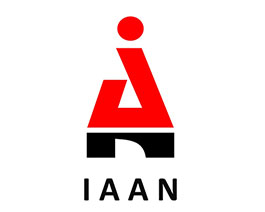Bachelors of Arts in Mass Communication (BAMC)
The nature and scope of the degree is purposefully kept very vast. Mass Communication includes almost all aspects of media, thus a BAMC Degree ensures that students have the academic background and support when they transition within the industry from TV to radio or from print to films. We do not believe in limiting students to any one particular field within Media and train them for all aspects of mass communication and journalism
Course Features
- Eligibility : 10+2
- Duration : 3 Years
- Semesters: 6
- Type: Degree
Bachelors Degree in Mass Communication
Course Objectives
- The BAMC Undergraduate Programme is designed to meet the following objectives:
- To impart students with an understanding of the Mass Communication process, its impact on human and social sphere and socio-cultural environment within which it operates.
- To familiarise the students with the working of both print and electronic media.
- To develop working skills needed for Newspapers, Magazines, Radio, TV and Web Journalism.
- To Provide basic training in different areas of Media.
- To improve the communication ability of students, particularly in professional genres.
- To instill in students a sense of purpose, mission and ethical values in their chosen fields.
- To instill in students a sense of purpose, mission and ethical values in their chosen fields.
- To engage students in critical analysis of the texts of Mass Communication.
- To initiate students in the culture and habit of self study.
- To prepare professionals, who possess the ability to produce, present and disseminate information in accordance with the highest standards of excellence in media organistaions, NGO's and others.
- To lead students towards intellectual preparation that emphasizes the ability to think critically and creatively. Enable them to solve problems effectively in a professional context and to cope with the fast moving changes in the professional world of media.
- To cultivate students ability to think critically and creatively in a professional context and to cope with the fast moving changes in the world of media.
Graduate Attributes
The Graduate Attribute (GAs) reflect particular qualities and abilities of an individual learner including knowledge, application of knowledge, professional and life skills, attitudes and human values that are required to be acquired by Mass Communication graduates
Bachelors Degree Students on completion of the Course will gain:
Disciplinary Knowledge
Understanding the Role of Press
Skilled and Industry-ready Professionals
Influential and Effective Communication
Leadership Readiness/ Qualities
Critical/ Reflective Thinking & Language Efficiency
Technologically Efficient Professional
Ethical Awareness
Lifelong Learning
Research-related Skills:
Bachelors of Arts in Mass Communication
Course Syllabus
Bachelors of Arts in Mass Communication
Semester 1
| DESCRIPTION | SUMMATIVE EVALUATION | CONTINUOUS EVALUATION | TOTAL | |
| Theory | Practical | |||
| Science of Communication I | 80 | – | 20 | 100 |
| Sociology | 80 | – | 20 | 100 |
| Basic Computer Application | 50 | 30 | 20 | 100 |
| English | 40 | – | 10 | 50 |
| Communication Skills | 25 | 15 | 10 | 50 |
Bachelors of Arts in Mass Communication
Semester 2
| DESCRIPTION | SUMMATIVE EVALUATION | CONTINUOUS EVALUATION | TOTAL | |
| Theory | Practical | |||
| Science of Communication II | 80 | – | 20 | 100 |
| Computer for Mass Media | 50 | 30 | 20 | 100 |
| Psychology | 80 | – | 20 | 100 |
| Environmental Science | 40 | – | 10 | 50 |
| Photo Journalism | 25 | 15 | 10 | 50 |
Bachelors of Arts in Mass Communication
Semester 3
| DESCRIPTION | SUMMATIVE EVALUATION | CONTINUOUS EVALUATION | TOTAL | |
| Theory | Practical | |||
| History of Print and Electronic Media | 80 | – | 20 | 100 |
| Political Science | 80 | – | 20 | 100 |
| News Writing | 50 | 30 | 20 | 100 |
| Hindi – I | 40 | – | 10 | 50 |
| Art of Anchoring | 25 | 15 | 10 | 50 |
Bachelors of Arts in Mass Communication
Semester 4
| DESCRIPTION | SUMMATIVE EVALUATION | CONTINUOUS EVALUATION | TOTAL | |
| Theory | Practical | |||
| Reporting and Editing for Print Media | 50 | 30 | 20 | 100 |
| Economics | 80 | – | 20 | 100 |
| New Media and Online Journalism | 50 | 30 | 20 | 100 |
| Communicative English | 40 | – | 10 | 50 |
| Radio Production | 25 | 15 | 10 | 50 |
Bachelors of Arts in Mass Communication
Semester 5
| DESCRIPTION | SUMMATIVE EVALUATION | CONTINUOUS EVALUATION | TOTAL | |
| Theory | Practical | |||
| Reporting and Editing for Electronic Media | 50 | 30 | 20 | 100 |
| Development Communication | 80 | – | 20 | 100 |
| Advertising | 50 | 30 | 20 | 100 |
| Television Production | 25 | 15 | 10 | 50 |
| Hindi – II | 40 | – | 10 | 50 |
BA in Mass Communication
Semester 6
| DESCRIPTION | SUMMATIVE EVALUATION | CONTINUOUS EVALUATION | TOTAL | |
| Theory | Practical | |||
| Communication Research | 50 | 30 | 20 | 100 |
| Media, Law and Ethics | 80 | – | 20 | 100 |
| Public Relations | 80 | – | 20 | 100 |
| Non-Linear Video Editing | 40 | – | 10 | 50 |
| Creative Writing | 25 | 15 | 10 | 50 |
Note
- 1. All other practical work, industry connect, student films and training will be in addition to the academic training.
What you need after application
Your application will require the following simple documents:
- Aadhaar, Class 10 + 12 marksheets
Steps to apply
- 1. Decide on your course
- 2. Fill the Application Form
- 3. Submit the Application Form
- 4. Pay the Rs. 500 application fee









